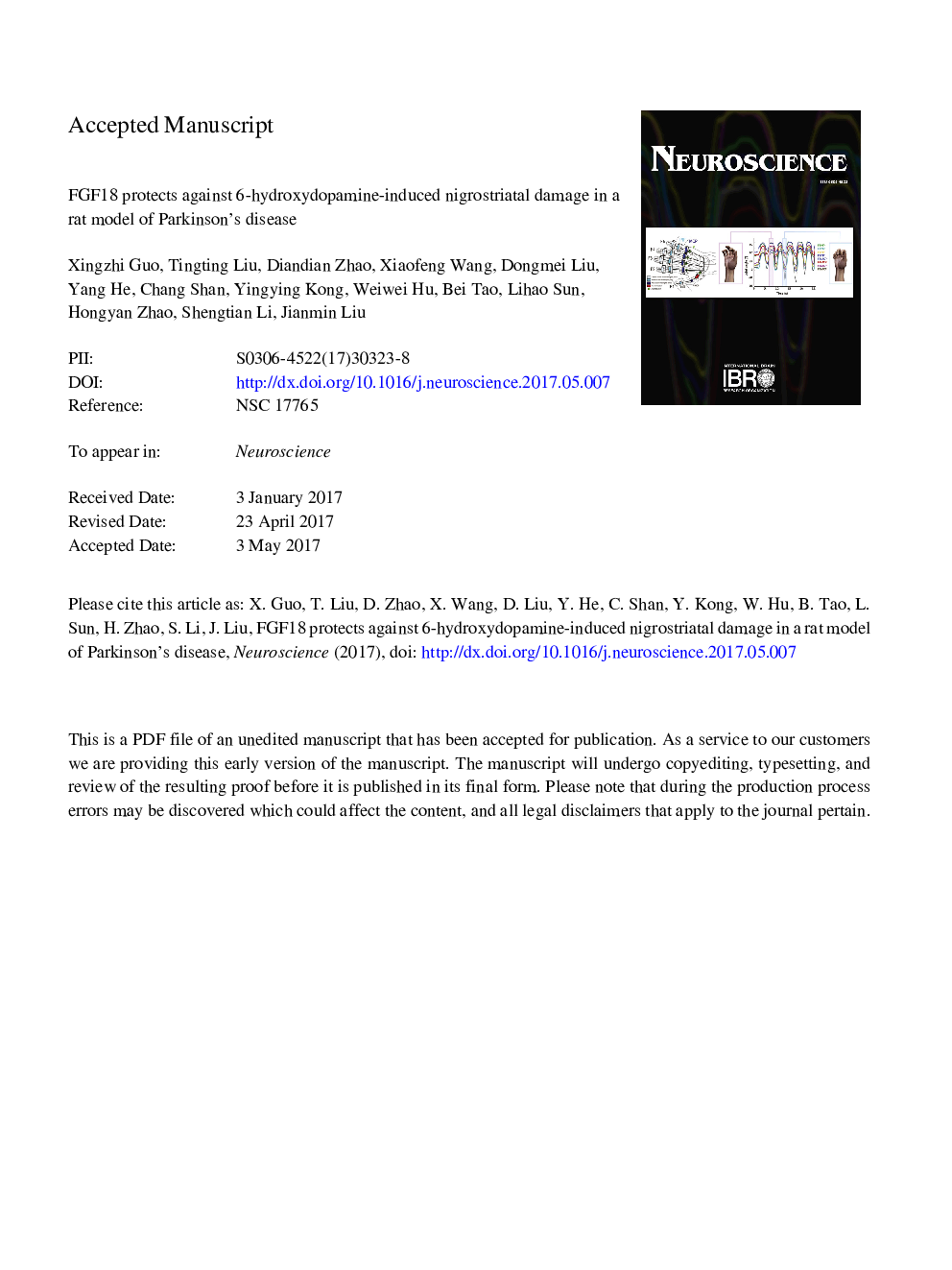| Article ID | Journal | Published Year | Pages | File Type |
|---|---|---|---|---|
| 5737411 | Neuroscience | 2017 | 39 Pages |
Abstract
Dopaminergic neuronal injury in the substantia nigra (SN) is a pathological hallmark of Parkinson's disease (PD). However, the underlying mechanism of this injury remains elusive. Since fibroblast growth factor 18 (FGF18) is involved in midbrain development and has been reported to protect neurons from ischemic injury, we investigated whether FGF18 exerted a protective effect on dopaminergic neurons in the SN. In vitro data showed that FGF18 significantly ameliorated the neurotoxicity of 6-hydroxydopamine (6-OHDA) through the AKT/GSK3β signaling pathway. Further study of the 6-OHDA-induced PD rat model indicated that FGF18 improved the behavioral dysfunction in PD rats and reduced the tyrosine hydroxylase (TH)-positive neuronal loss in the SN. In addition, 6-OHDA induced a loss of TH-positive fibers that was reversed by pretreatment with FGF18. Taken together, these data suggest that FGF18 plays a protective role against parkinsonian neurodegeneration in the nigrostriatal system in a 6-OHDA-induced PD rat model and that further drug discovery based on FGF18 has a potential role for PD therapy.
Keywords
Related Topics
Life Sciences
Neuroscience
Neuroscience (General)
Authors
Xingzhi Guo, Tingting Liu, Diandian Zhao, Xiaofeng Wang, Dongmei Liu, Yang He, Chang Shan, Yingying Kong, Weiwei Hu, Bei Tao, Lihao Sun, Hongyan Zhao, Shengtian Li, Jianmin Liu,
